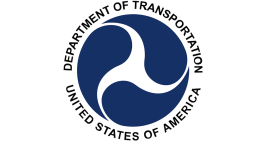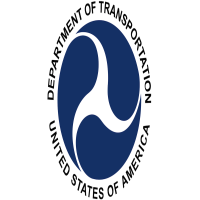DOT Releases Research, Development and Technology Strategic Plan

The U.S. Department of Transportation (DOT) this month issued its Research, Development and Technology (RD&T) Strategic Plan for Fiscal Years (FY) 2022-2026, aimed at encouraging transportation innovation that meets the priorities within the agency’s overall strategic plan. The plan particularly singles out work to be performed under certain grant programs funded through the Infrastructure Investment and Jobs Act (IIJA) (Pub. L. 117-58).
“We recognize that the work of research, development and technology deployment takes collaborative effort across the public, private, academic and nonprofit sectors,” said DOT Deputy Assistant Secretary for Research and Technology and Chief Science Officer Dr. Robert C. Hampshire. “In this time of rapid change and experimentation, research must drive the learning necessary for the public sector to keep pace with technological advancement and to adapt to evolving socio-economic needs. By providing a vision for a future transportation system made possible by research, we seek to foster collaborative innovation to create a better transportation future for all.”
The plan provides a long-term vision for how research and technology deployment can help transform the U.S. transportation system, while guiding transportation research, development and technology deployment activities over the next five years. It will be used as a reference document for DOT research grants and contracts to ensure that such awards further the strategic goals and research priorities of the department.
The strategic plan promotes the following key innovation programs authorized under IIJA:
- Strengthening Mobility and Revolutionizing Transportation (SMART) Grants — A new competitive grant program that supports state, local and tribal governments in conducting demonstration projects to advance smart city or community technologies and systems that improve transportation efficiency and safety, as well as other priority goals such as climate mitigation, resilience and equity. DOT anticipates that the SMART grant program will include two phases. The first phase will support planning, team-building and developing a proof-of-concept; the second phase will include demonstration projects at greater scale.
- Advanced Transportation Technologies and Innovative Mobility Deployment — A competitive grant program available to state and local governments and agencies, metropolitan planning organizations, regional partnerships, and research consortia for the development of advanced transportation technologies and innovative mobility deployments.
- Advanced Research Projects Agency-Infrastructure (ARPA-I) — A new agency within DOT modeled after the Department of Defense’s Defense Advanced Research Projects Agency and DOE’s Advanced Research Projects Agency-Energy, ARPA-I aims to catalyze the development of innovative technologies, systems and capabilities that transform the nation’s physical and digital infrastructure to ensure American leadership.
- Open Research Initiative — A new advanced transportation research pilot program that supports states, local governments, universities, nonprofit organizations and private sector organizations by enabling them to submit unsolicited research proposals addressing unmet DOT research needs.
- Nontraditional and Emerging Transportation Technology Council — Established in law to identify and resolve jurisdictional and regulatory gaps associated with nontraditional or emerging transportation technologies, including issues related to safety, environmental review and funding and financing.
- Smart Community Resource Center — An online resource on intelligent transportation system and smart communities approaches for use by state, local, tribal and territorial governments.
- Transportation Resilience and Adaptation Centers of Excellence (TRACE) grant program — A competitive research and development grant program that supports institutes of higher education to improve resilience to natural disasters and extreme weather by promoting the resilience of surface transportation infrastructure. The TRACE grant program supports 10 regional Centers of Excellence and one national Center of Excellence.
- Other departmentwide research funding — IIJA provides more than $5 billion in research funding to support research efforts including technology transfer across the agency. DOT supports various research and grant programs focused on professional capacity building, pilot and demonstration projects, and research partnerships designed to accelerate technology commercialization and deployment in the field.
It will be interesting to see how DOT oversees future programs to incorporate this plan.
Join us for our following Thompson Grants events:
Federal Grants Forum for State & Local Governments | Feb. 15-16, 2022 | Virtual Event
Nonprofit Legal, Finance, and Grants Conference | April 6-7, 2023 | Washington, D.C.



